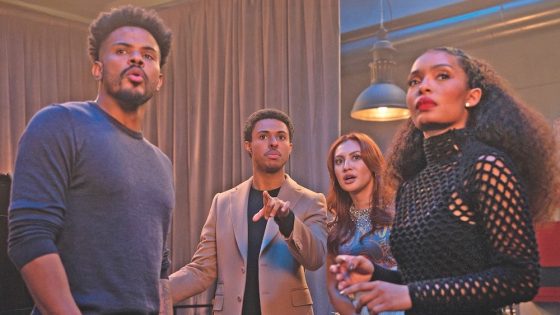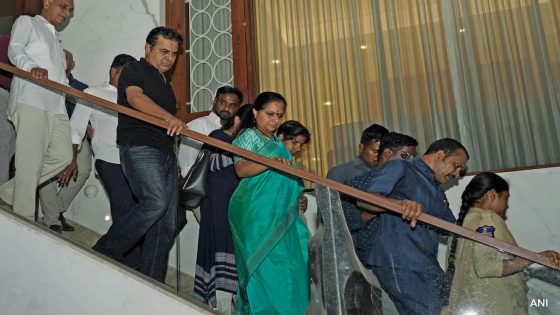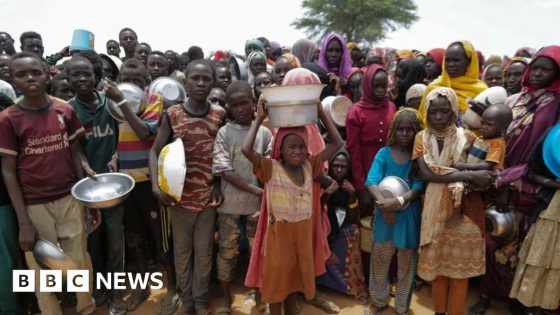Kenya Barris was deeply inspired by “The Cosby Show” when he created “Black-ish” in 2014. The writer and executive producer wanted to create a similarly beloved family sitcom that was expressly Black, not only with the characters, but also in the subject matter the show covered. That mission was achieved, and like “The Cosby Show,” “Black-ish” went on to spawn a TV universe that would also make an impact.
“Grown-ish” was the first “Black-ish” spinoff. It has now gone six seasons and will air its 100th episode this month. Similar to “A Different World” with Lisa Bonet’s Denise Huxtable from “The Cosby Show,” “Grown-ish” has chronicled the college adventures of “Black-ish” characters Zoey Johnson (Yara Shahidi) and later Andre Johnson Jr. (Marcus Scribner). “Grown-ish” has become a tentpole series for Freeform, according to Simran Sethi, exec VP of programming and content at Freeform and ABC.
The series has tackled storylines about college athlete pay, college investment in for-profit prisons, depression in the Black community and so much more, making it a marquee title in new adult storytelling.
“We’ve watched these kids go through the journey of this period of life. Now they are about to go into another really important period, but we wanted to say thank you to our audience for watching us go through all of this messiness of what it is to grow up together,” Barris tells Variety.
The 100th episode of “Grown-ish,” which airs April 17, is a celebration of how much Zoey and Andre have grown up on the show. In the landmark hour, Zoey returns to Los Angeles for a career-defining fashion show. When the pre-arranged venue is usurped by a bar mitzvah, Zoey and Andre must band together to save the day, but their struggles to overcome old bad habits threaten to ruin both the event and their respective burgeoning careers.
“We wanted to make sure that the 100th felt significant. We wanted it to be a celebration of style, sizzle, pop and all the stuff that is Zoey, but we also wanted to highlight personal growth,” says showrunner Craig Doyle. “The episode surrounds a fashion show, but in the story, she does battle with herself.”
Shahidi is aware of how often Zoey has gotten in her own way throughout the series, which is why it felt warranted to have her face off with her past bad judgment in the episode to prove she’s really changed.
“I know the audience has gotten annoyed with her ups and downs, but I stand by it because I think her growth is realistic. You don’t magically come out as a more confident, wholly strong human being,” Shahidi says. “In this episode, she has a 100% new rebound ability. It doesn’t mean that she’s not still freaking out, but ultimately, she’s grown in her fashion skill set and she’s grown in her ability to bring something to life.”
GROWNISH – “California Love”
Disney
Andre also gets to show off his growth from being a dorky little brother to a man who can step up and help his sister.
“The episode showcases that he’s not the baby brother who needs to be coached in the closet before going out and showing the world what he is capable of. He’s his own take-charge kind of man who is running his own business,” says Scribner. “He can step up in times of need. He can be clutch.”
The growth of the characters on screen mirrors how Shahidi and Scribner have grown up behind the scenes; they were each 14 when the flagship series premiered. Shahidi became No. 1 on the call sheet only four years later and added executive producer duties to her resume. She hopes the show is the same engine of growth for her colleagues.
“It feels like we’re all walking away with a different set of opportunities, a different set of stories to be told because of the doors that ‘Grown-ish’ opened,” she says. “Kenya saw something in me that I don’t know I would have seen in myself. The trust he placed in me was really pivotal in my journey. I hope people feel similarly.”
This milestone comes with the bittersweet knowledge that “Grown-ish” will end shortly after. Having the milestone episode and the series finale so close together meant reflecting not only on how far the show has come, but what it will leave behind.
“These shows, beginning with ‘Black-ish,’ have been a hallmark of ABC Signature — series that are authentic, beautifully written and acted and incredibly entertaining,” says Tracy Underwood, president of ABC Signature. “Working with the creative talents of Kenya Barris, Craig Doyle, Yara Shahidi, Marcus Scribner and everyone who made ‘Grown-ish’ such a lasting, joyful experience has been a true privilege for everyone at our studio. They have raised the bar as brilliant and extraordinary storytellers.”
The authenticity of “Grown-ish” and the stories it has told was a recurring theme throughout the interviews about the 100th episode.
“The fact that we have a volume of things on this Cal U campus with Yara and Marcus and all these great kids telling stories as best they can, as best as we could authentically, that will be the legacy of the show,” Doyle predicts.
Scribner adds that he connects with the show because of the imperfections of the characters.
“Growing up, you have this narrative in your head that you’re either good, or you did a bad thing so now you’re inherently bad. It’s interesting to watch our characters go through this moral struggle in their head. A lot of people can connect to not knowing what’s next,” Scribner says. “I hope people take away that it’s OK to not know what’s next. It’s OK to struggle and to flail.”
For Shahidi, the legacy of the show comes from all of the people who worked on it.
“I think the show only functioned because the teams on the show at every level cared deeply about the final product. What made me emotional about wrapping was that I was on a set full of nice people. It’s fun to go to set. It’s fun to work,” she says. “So many times we hear crazy stories about what set is like and I feel like we were on a set of people who truly appreciated the opportunity to be there. As an executive producer, the success of ‘Grown-ish’ is because of the teams that were built.”
As for Barris, it’s emotional to think about how this universe brought so many people together, just like the shows that inspired it.
“To have been a part of TV for 10 or 11 years, people’s families and in their life growing up — I grew up with these shows as well,” he says. “It definitely makes me want to cry, to feel like that is something that I got a chance to be a part of and share with the world and let the world share with me.”
Source Agencies




